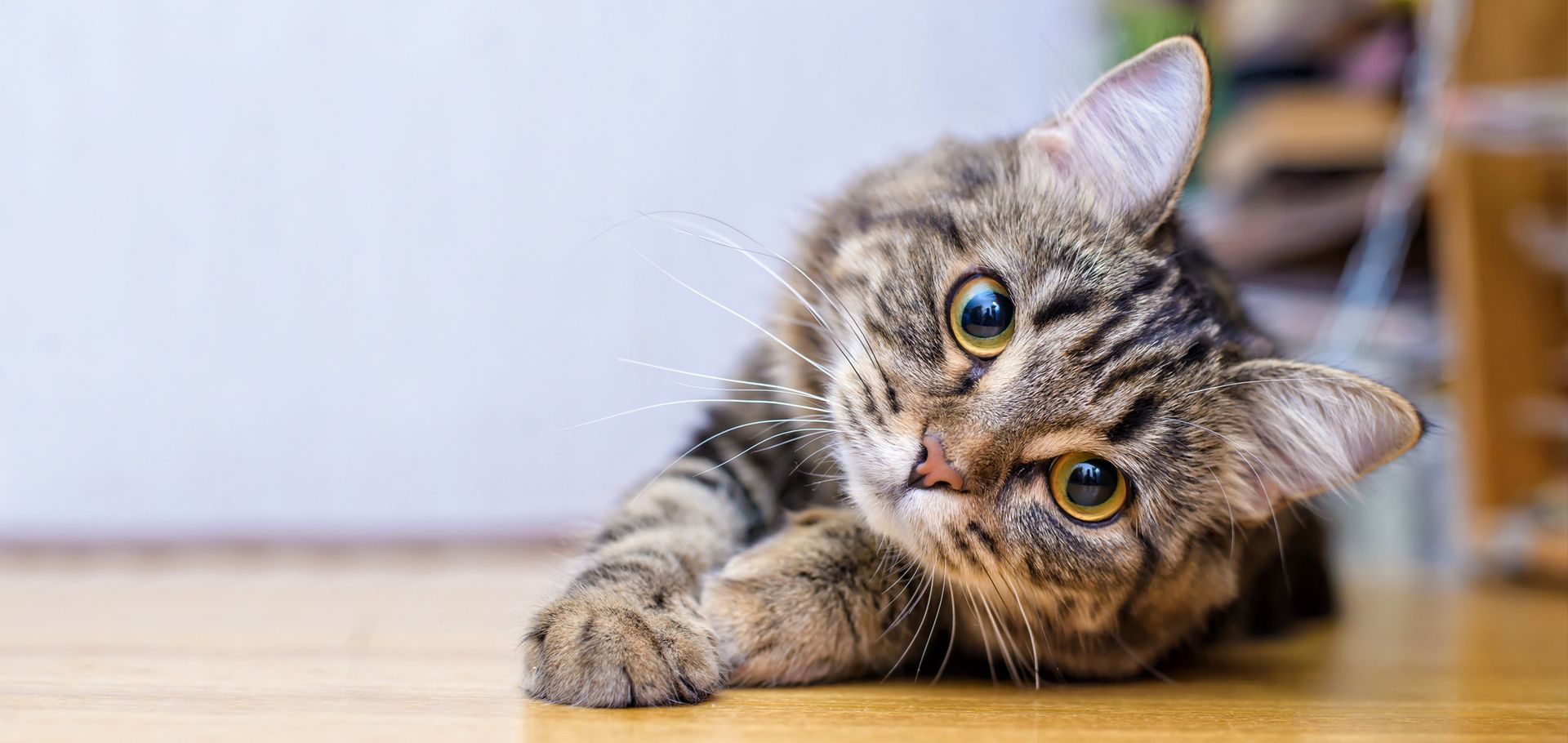
When it comes to caring for your feline friend, regular visits to the vet are essential. But just how often should you take your cat to the vet?
In this article, we'll tackle the recommended frequency of cat checkups, what happens during these visits, their importance for your cat's well-being, and everything else.
If you’re ready, then let's dive right in!
How Often to Take Kittens to the Vet
Kittens require more frequent vet visits during their first year of life. Here's a recommended schedule:
6-8 Weeks
Your kitten should have their first vet visit, which includes vaccinations, deworming, and a thorough health check.
12 Weeks
On the second visit, expect your cat to receive booster vaccinations and regular health assessments.
16 Weeks
At this stage, there will be another round of vaccinations and a checkup to make sure your kitten's immune system is strong.
6 Months
By six months of age, kittens are becoming young adults. At this stage, your vet will discuss spaying or neutering options.
After the initial year, your cat should have annual checkups. It’s important to take note that kittens may have to be taken to the vet more often than usual if they show signs of illness or require special care.
Adult Cats (1-7 Years Old)
Annual checkups are generally sufficient for adult cats aged one to seven years. These visits serve as a way to monitor your cat's overall health and catch any emerging issues. During these appointments, your vet may adjust vaccinations, recommend dental cleanings, and discuss preventive care.
Senior Cats (7 Years and Older)
As cats reach their senior years, typically around age seven, their health needs change. Senior cats are more susceptible to age-related conditions, so biannual checkups are advisable. These visits allow for closer and better monitoring of your cat's health to address any age-related issues and make sure they receive appropriate care.
What Happens During a Cat Checkup?
During a cat checkup, your feline friend receives comprehensive care from the veterinarian. This
wellness exam, tailored to your cat's unique needs, covers a range of vital aspects. It obviously involves the pet owner and the cat. However, if it’s your first time or you’re not entirely familiar with the process, here’s what you should expect him during the visit:
Physical Examination
The checkup starts with the vet giving your cat a thorough physical examination. They'll inspect your cat's eyes, ears, nose, mouth, skin, coat, and overall body condition. Veterinarians perform this examination to identify any visible issues or abnormalities.
Vital Signs
Then, the vet will record your cat's vital signs, including temperature, heart rate, and respiratory rate. These measurements provide accurate and valuable insights into your cat's health.
Vaccination Update
Your cat’s vaccination shots must be up-to-date. So, if your cat is due for vaccinations or boosters, the vet will administer them during the checkup. Vaccinations protect your cat from catching various diseases.
Parasite Control
Parasites are nobody’s friend. If your cat has acquired one, taking action immediately is important. Typically, you and the vet will discuss it, and they’ll recommend parasite control measures like flea and tick prevention or deworming.
Dental Check
You shouldn’t neglect your cat’s dental health. The vet will take a closer look at your cat's teeth and gums, addressing any dental issues or recommending preventive dental care.
Bloodwork and Tests
Depending on your cat's age and health status, the vet may recommend blood tests and other diagnostic tests to screen for underlying health issues.
Nutritional Guidance
Depending on your cat’s diet and nutritional needs which are determined based on their age and health condition, the vet will give you advice on the nutrients that your cat lacks or needs.
Behavioral Assessment
If your cat’s behavior concerns you, don’t be afraid to bring it up and discuss it with the vet who can offer guidance and effective solutions.
Benefits of a Regular Cat Checkup
Regular cat checkups offer numerous benefits for both you and your feline companion:
Early Disease Detection
Routine exams can detect health issues early, making treatment more effective and less costly.
Preventive Care
Vaccinations, parasite control, and dental care provided during checkups prevent many common health problems.
Longer, Healthier Life
Cats that receive regular veterinary care tend to live longer and enjoy a higher quality of life.
Behavioral Advice
Vets can help address behavioral issues that might be causing stress or discomfort for your cat.
Personalized Care
Every cat is unique and has its own set of quirks, which is what makes us drawn to them even more. Having regular checkups lets the vet adjust their recommendations based on your cat’s specific needs.
Peace of Mind
When your cat is healthy, they’re happy and you’re happy too. As their owner, you have a peace of mind knowing that they’re safe and far from harm.
When to Take Your Cat to the Vet: Signs You Should Act On
While regular checkups are vital, there are times when you should schedule a vet visit outside of your cat's routine appointments. Watch for these signs that may indicate your cat needs immediate attention:
Changes in Eating or Drinking Habits:
If your cat suddenly stops eating or drinking, it could be a sign of illness.
Lethargy
If your cat is unusually tired or inactive, it may be a sign of an underlying problem.
Vomiting or Diarrhea
Persistent or severe vomiting and diarrhea can lead to dehydration and require medical attention.
Breathing Problems
Labored breathing, coughing, or wheezing should be evaluated by a vet.
Weight Loss or Gain
Rapid changes in your cat's weight can be a sign of health issues.
Difficulty Urinating
Straining to urinate, blood in the urine, or using the litter box more frequently are concerning signs.
Changes in Grooming Habits
Cats are typically meticulous groomers, so a lack of grooming or excessive grooming can both be indicators of health problems.
Visible Injuries or Wounds
Any wounds, cuts, or injuries should be examined by a vet to prevent infection.
Remember that cats are masters at hiding their discomfort, so if you notice any unusual behavior or symptoms, it's best to consult a veterinarian promptly.
Kittens require more frequent vet visits during their first year of life. Here's a recommended schedule:
How Often to Take Adult Cats to the Vet
Annual checkups are generally sufficient for adult cats aged one to seven years. These visits serve as a way to monitor your cat's overall health and catch any emerging issues. During these appointments, your vet may adjust vaccinations, recommend dental cleanings, and discuss preventive care.
How Often to Take Senior Cats to the Vet
As cats reach their senior years, typically around age seven, their health needs change. Senior cats are more susceptible to age-related conditions, so biannual checkups are advisable. These visits allow for closer and better monitoring of your cat's health to address any age-related issues and make sure they receive appropriate care.
What to Do if Your Cat Doesn't Like the Vet
Many cats are not fans of vet visits, but there are strategies to make the experience less stressful:
Desensitization
Gradually expose your cat to the carrier and car rides so they become less anxious.
Positive Associations
Use treats and toys to create positive associations with the vet and the clinic.
Familiar Scent
Place a blanket or towel with your cat's scent in the carrier to provide comfort.
Calm Environment
Keep the waiting room calm and free of loud noises or barking dogs.
Cat-Friendly Clinics
Seek out clinics that specialize in feline care and offer a cat-friendly environment.
Medications
If your cat is extremely anxious, consult your vet about safe medications or natural remedies.
Remember that patience and consistency are key to helping your cat feel more comfortable with vet visits over time.
How Often to Take Adult Cats to the Vet
While cats are often seen as independent creatures, neglecting their veterinary care can have serious consequences. Regular checkups are essential for maintaining your cat's health and well-being, as they allow for early detection and treatment of potential issues before they escalate into more serious problems.
Skipping vet visits may seem tempting, especially if your cat appears healthy. However, many feline diseases can progress silently without showing obvious symptoms until they are advanced. By the time you notice a problem, it may be more difficult and expensive to treat.
Does Pet Insurance Cover Vet Checkups?
Pet insurance policies vary, but most don’t cover routine checkups. However, they can be useful for covering unexpected veterinary expenses, such as accidents, illnesses, surgeries, and emergency care.
While pet insurance won't directly pay for your cat's regular checkups, it can provide peace of mind knowing that you have financial support if a more significant medical issue arises. Check with your local insurance provider so you know which procedures they cover.
Partner With Brewerton Animal Hospital For Your Cat’s Healthy Future!
While bringing your cat to the vet may not be their favorite activity, it's an important part of responsible pet ownership. Having regular checkups also makes sure that they get to enjoy a long, healthy, and happy life with you. No matter how old your pet cat is, understanding the recommended frequency of vet visits is crucial for their well-being. So, partner with Brewerton Animal Hospital to provide the best care for your beloved cat.
Prioritize your cat's health today!
Schedule an appointment and ensure a long, happy life for your feline friend.
SHARE THIS ARTICLE




